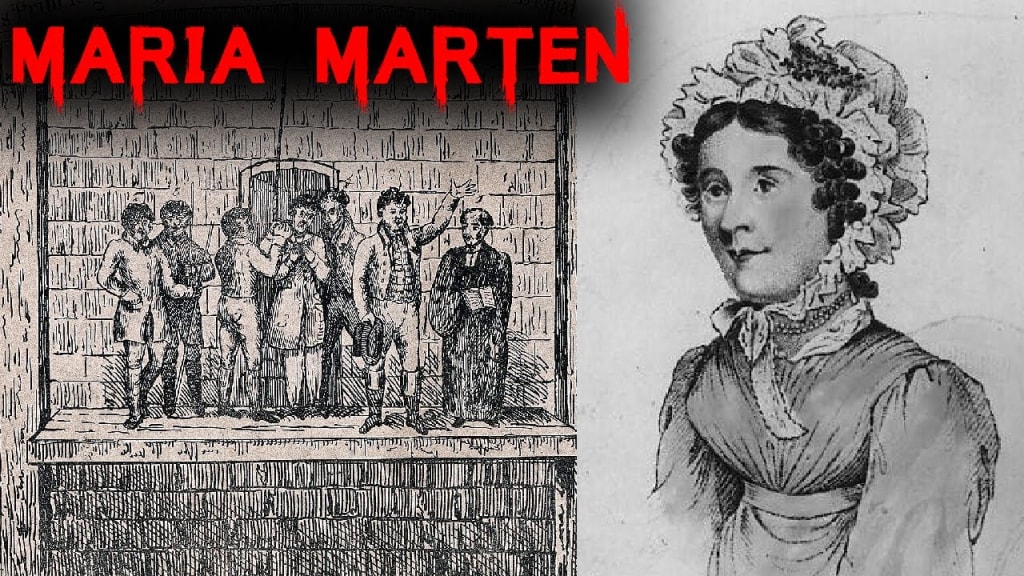The Deadly Affair: The Murder of Maria Marten
The Shocking Crime That Shook a Small English Village in the 19th Century

In the early 1800s, the small village of Polstead in Suffolk, England was rocked by a shocking crime that would become one of the most infamous murders in British history. The victim was a young woman named Maria Marten, and her killer was her lover, William Corder.
Maria was a beautiful and vivacious woman, well-known in the village for her charm and outgoing personality. She was also the mother of two children, both born out of wedlock, which was scandalous in those days. Despite this, Maria was a well-liked and respected member of the community.
William Corder was a local farmer, known for his good looks and charm. He was also a notorious womanizer, and had a reputation for seducing young women and then abandoning them. When he met Maria Marten, he was immediately smitten, and they began a passionate affair.
For a while, their relationship seemed idyllic. They would meet secretly in the woods, and spend long hours together, lost in each other's company. But eventually, the truth about their relationship began to emerge, and it became clear that William had no intention of marrying Maria.
Desperate to keep her lover, Maria begged William to marry her, but he refused. Instead, he concocted a plan to get rid of her once and for all. He convinced her to meet him at the Red Barn, a deserted building on the outskirts of the village, where he promised to marry her in secret.
On the night of May 18th, 1827, Maria Marten left her home, telling her family that she was going to elope with William. She was never seen alive again.
For months, there was no sign of Maria, and the villagers began to fear the worst. Then, in August of that year, a gruesome discovery was made. The remains of a young woman were found buried in the Red Barn, wrapped in a sack and buried beneath the floorboards.
The identity of the victim was soon confirmed as Maria Marten and William Corder were arrested for her murder. He was tried and found guilty, and on August 11th, 1828, he was hanged in front of a crowd of thousands of spectators.
The murder of Maria Marten became a sensation, both in England and around the world. It was the subject of countless books, plays, and songs, and it remains one of the most famous criminal cases in British history.
But what makes the case so fascinating is not just the brutality of the crime, but how it reflects the social and cultural norms of the time. Maria Marten was a young woman who had been abandoned by the man she loved, and who was driven to desperate measures to keep him. William Corder was a man who saw women as disposable objects, to be used and discarded at will.
The murder of Maria Marten was a tragedy, but it also served as a powerful reminder of the importance of respecting and valuing the lives of all individuals, regardless of their gender or social status.
The trial of William Corder was a media sensation, with reporters from all over the country descending on the small village of Polstead to cover the case. The prosecution's case was based largely on circumstantial evidence, but it was still enough to convince the jury of Corder's guilt.
During the trial, it emerged that Corder had planned the murder meticulously. He had arranged for a friend to provide him with a horse and carriage on the night of the murder, and he had even purchased a new spade for the occasion. He had told Maria that he would meet her at the Red Barn, where they would be married, and he had convinced her to wear her best clothes for the occasion.
When Maria arrived at the Red Barn, Corder shot her in the head with a pistol, then buried her body in the floorboards. He then returned home as if nothing had happened, and even attended Maria's funeral, feigning grief and innocence.
But despite his efforts to cover his tracks, Corder was eventually caught. He had made several mistakes, including leaving behind a bloodstained handkerchief, and his lies and inconsistencies had aroused suspicion among the villagers.
At his trial, Corder showed no remorse for his actions. He maintained his innocence until the end, claiming that Maria had committed suicide and that he had simply buried her body out of fear of being accused of her murder.
But the evidence against him was overwhelming, and the jury found him guilty after just one hour of deliberation. Corder was sentenced to death by hanging, and his execution was carried out in front of a large crowd of onlookers.
The murder of Maria Marten had a profound impact on the villagers of Polstead, who were shocked and horrified by the brutality of the crime. It also had a wider impact on society as a whole, sparking debates about the treatment of women and the morality of extramarital relationships.
Today, the Red Barn where the murder took place is a popular tourist attraction, and the story of Maria Marten and William Corder continues to fascinate and intrigue people all over the world. But for the people of Polstead, the memory of the murder is a tragic reminder of the fragility of human life, and the dangers of obsession and jealousy.
The murder of Maria Marten also had a lasting impact on the justice system in England. Before the case, the use of circumstantial evidence in criminal trials was highly controversial, with many legal experts arguing that it was unreliable and open to interpretation.
But the successful prosecution of William Corder, based largely on circumstantial evidence, helped to establish the validity of this type of evidence in criminal cases. Today, circumstantial evidence is widely used in trials around the world and is considered an important tool in the fight against crime.
The case also highlighted the importance of forensic science in criminal investigations. Although the concept of forensic science was still in its infancy in the early 1800s, the murder of Maria Marten demonstrated the value of using scientific techniques to gather evidence and build a case against a suspect.
In the years following the murder, many writers, artists, and musicians were inspired by the tragic story of Maria Marten and William Corder. The case was the subject of countless poems, songs, and plays, and it became a staple of Victorian melodramas.
Today, the murder of Maria Marten remains one of the most famous criminal cases in British history and continues to capture the imagination of people around the world. The Red Barn where the murder took place is still standing and is now a popular tourist attraction.
But while the case may have faded from the headlines over time, its impact on society continues to be felt. The murder of Maria Marten served as a powerful reminder of the importance of justice, and the need to hold individuals accountable for their actions.
And although the case is now more than two hundred years old, it remains a haunting and unforgettable example of the dark side of human nature, and the tragic consequences that can result when obsession and jealousy are allowed to take hold.
About the Creator
junaid mughal
I am just a Technology geek, who loves to experience latest gadgets, technology and share it with the world here.
Enjoyed the story? Support the Creator.
Subscribe for free to receive all their stories in your feed. You could also pledge your support or give them a one-off tip, letting them know you appreciate their work.






Comments
There are no comments for this story
Be the first to respond and start the conversation.